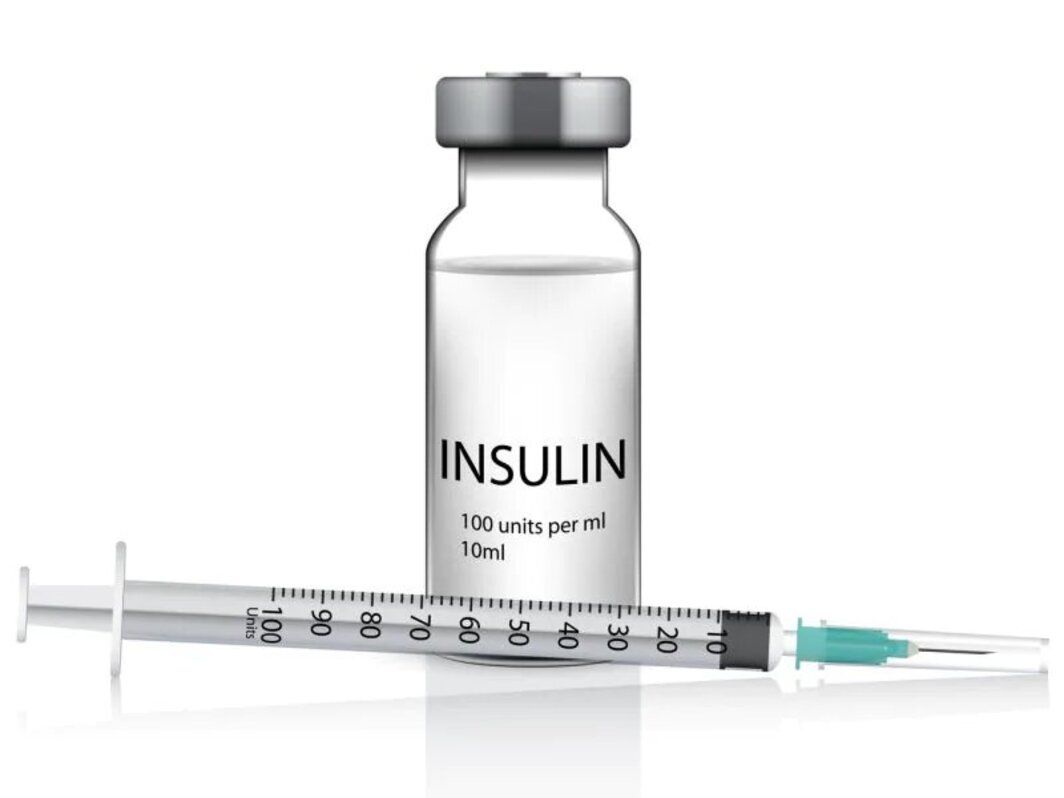Diabetes Management
10 Tips To Choose The Right Diabetes Test Provider
5 min read
By Apollo 24|7, Published on - 29 June 2023, Updated on - 12 December 2023
Share this article
0
0 like

If you have diabetes, selecting the right diabetes test provider is of utmost importance. An experienced test provider would ensure your test results are accurate and delivered on time, thus helping you maintain your blood glucose levels. Appropriate monitoring of diabetes will help your doctor determine the effect of food, exercise, stress and other factors on your blood glucose levels, thereby, helping them prepare a treatment plan accordingly. Read to know the tips to determine the right diabetes test provider for yourself or your loved ones.
10 Tips to Choose The Right Diabetes Test Provider
A reliable diabetes test provider will ensure accurate results, allowing you and your healthcare expert to make well-informed decisions regarding your treatment plan.
Additionally, a trusted provider must offer a seamless testing experience in terms of cost, convenience, and insurance coverage. Lab tests are known to be the most accurate measure for detecting glucose levels.
Here are some tips for choosing the right diabetes test provider for you:
1. Credibility and Trustworthiness
Look for a reputed and credible diabetes test provider. Your diabetes test provider must have certifications and accreditations from recognized organisations such as NABL certification. You must look for an experienced test provider who has been in the healthcare industry for a long time.
2. Cost Effectiveness
Run a comparison of the costs of tests across various diabetes test providers. Consider both the upfront cost and long-term affordability to make an informed financial decision.
3. Convenience
Travelling to a lab regularly may not be a possibility. Hence, see if your test provider offers a home collection facility. Seek a diabetes test provider that offers a convenient experience for you.
4. Test Accuracy
Investigate the accuracy of the tests offered by the test provider. Conduct research on their testing methods and equipment. Reliable diagnostic results help doctors determine any severe complications at the early stages.
5. Insurance Coverage
Determine if the diabetes test provider has tie-ups with reputable insurance providers. This will help reduce out-of-pocket expenses and ensure affordable testing. You can find the insurance tie-up list on your test provider’s website.
6. Availability
Check the availability of appointments and the turnaround time for test results. A test provider with flexible scheduling options and quick result delivery can help you with a smooth testing experience.
7. Online Reviews
Authentic public opinion of a diabetes test provider can also help you choose the right one. Read online reviews and testimonials from others with first-hand experience with a specific diabetes test provider. Their experiences can provide valuable insights into the quality of services offered and the accuracy of the tests.
8. Test Sensitivity
Highly sensitive tests can detect diabetes at an early stage. This will allow prompt action and management of diabetes. Look for a diabetes test provider which offers highly sensitive testing methods.
9. Test Specificity
Consider the specificity of the tests. A specific test ensures accurate identification of diabetes and avoids false positive results. This is an important factor as it can prevent diabetes complications.
10. Test Precision
Assess the precision of the tests offered. Test precision offers consistent and reliable results, eliminating the risk of misdiagnosis or fluctuating information.
Which Tests are Done to Diagnose Diabetes?
Here are some of the types of tests used to diagnose diabetes:
- HbA1c Test: Measures avg. blood glucose levels of 3 month
- Random Blood Glucose Test: Measured at any point of the day
- Fasting Plasma Glucose Test: Measured after 8 hours of fasting
- Oral Glucose Tolerance Test: Involves measuring blood sugar after 8 hours of fasting and after consuming a sugary drink
- Blood or Urine Ketone Tests: Measures the presence of ketone bodies in blood or urine (can be an indication of diabetic ketoacidosis)
- GAD Autoantibodies Test: The presence of these antibodies indicates type 1 diabetes
- C-peptide and Insulin: Low C-peptide indicates low insulin levels; furthermore low insulin indicates high blood sugar levels
How Often Should you get a Diabetes Test?
The frequency of diabetes testing varies from one individual to another. Factors that may influence your test frequency include overall health, age and the type of diabetes. The frequency of the tests can vary such as:
1. Individuals with type 1 diabetes should get tested at least once every year.
2. Those who have type 2 diabetes can get tested annually or more frequently as advised by their healthcare provider.
3. All diabetics diabetes must undergo periodic lipid profile tests to determine the total cholesterol levels in their body.
4. HbA1c tests are conducted every 2-3 months to monitor long-term blood sugar levels.
However, constant monitoring of blood sugar at home may be recommended by your doctor, depending on the type of diabetes.
Takeaway
Selecting the right diabetes test provider is important for accurate diagnosis and effective management. To choose the right diabetes test provider consider factors such as credibility, cost-effectiveness, convenience, and test accuracy.
You can also try the Apollo 24|7 Diabetes Self-Management Tool to log your sugar values, track patterns, know all about food nutrition and more.
For more information, Consult Apollo’s Diabetologists
FAQs
1. Which is the most accurate test for diabetes?
The HbA1c is a common type of diabetes test which provides information about your blood sugar levels over the past few months.
2. How can I test myself for diabetes?
While self-testing cannot replace professional diagnosis, you can monitor your blood sugar levels at home using a glucometer or blood glucose monitor. However, it is important to consult a healthcare expert before choosing such devices.
3. What are the different types of diabetes tests?
Fasting plasma glucose (FPG), oral glucose tolerance test (OGTT), random plasma glucose test, and HbA1c test are the common types of diabetes tests.
4. How accurate is the HbA1c test?
The HbA1c test is known to be highly accurate. It provides data related to average blood sugar levels over the past 2-3 months.
5. Can diabetes pass on to family members?
Yes, diabetes can pass on to family members. If you have a diabetic family member, it is advised to get a diabetes test (HbA1c) done every 6 months.
Medically reviewed by Dr Sonia Bhatt.
Diabetes Management
Consult Top Diabetologists
View AllFrequently Asked Questions
Test 1
Test 1
Leave Comment
Recommended for you
.jpg?tr=q-80)
Diabetes Management
Can Skipping Meals Cause Diabetes?
Skipping meals might seem like a harmless habit but it can lead to several health issues, including an increased risk of developing diabetes. Maintaining a regular meal schedule and consuming balanced meals can help stabilise blood sugar levels. For those needing guidance, programmes like the Apollo Super 6 offer personalised support to manage or prevent diabetes through lifestyle changes.
.jpg?tr=q-80)
Diabetes Management
Can Stress And Lack Of Sleep Cause Diabetes?
Did you know that persistent stress and chronic sleep deprivation can contribute to the development of type 2 diabetes? Maintaining a healthy sleep schedule and managing stress effectively is crucial in diabetes prevention and management. Start your journey towards better health today by understanding more about these risk factors and how to mitigate them. Enrol in Apollo's Super 6 programme to help you improve these conditions and, as a result, manage your diabetes more effectively.

Diabetes Management
Why Are Some Diabetes Patients Treated with Insulin Injections?
Insulin injections play a vital role in managing diabetes. In type 1 diabetes, where the body doesn't produce insulin, these injections are essential for survival. For some with type 2 diabetes, a progressive condition involving insulin resistance, insulin therapy becomes necessary as the disease advances. It helps regulate blood sugar levels, preventing complications and improving overall health. Healthcare providers customize treatment plans to meet individual needs, ensuring precise control over blood sugar.
Subscribe
Sign up for our free Health Library Daily Newsletter
Get doctor-approved health tips, news, and more.
Visual Stories

8 Fruits That are Incredibly Healthy for Diabetes
Tap to continue exploring
Recommended for you
.jpg?tr=q-80)
Diabetes Management
Can Skipping Meals Cause Diabetes?
Skipping meals might seem like a harmless habit but it can lead to several health issues, including an increased risk of developing diabetes. Maintaining a regular meal schedule and consuming balanced meals can help stabilise blood sugar levels. For those needing guidance, programmes like the Apollo Super 6 offer personalised support to manage or prevent diabetes through lifestyle changes.
.jpg?tr=q-80)
Diabetes Management
Can Stress And Lack Of Sleep Cause Diabetes?
Did you know that persistent stress and chronic sleep deprivation can contribute to the development of type 2 diabetes? Maintaining a healthy sleep schedule and managing stress effectively is crucial in diabetes prevention and management. Start your journey towards better health today by understanding more about these risk factors and how to mitigate them. Enrol in Apollo's Super 6 programme to help you improve these conditions and, as a result, manage your diabetes more effectively.

Diabetes Management
Why Are Some Diabetes Patients Treated with Insulin Injections?
Insulin injections play a vital role in managing diabetes. In type 1 diabetes, where the body doesn't produce insulin, these injections are essential for survival. For some with type 2 diabetes, a progressive condition involving insulin resistance, insulin therapy becomes necessary as the disease advances. It helps regulate blood sugar levels, preventing complications and improving overall health. Healthcare providers customize treatment plans to meet individual needs, ensuring precise control over blood sugar.

